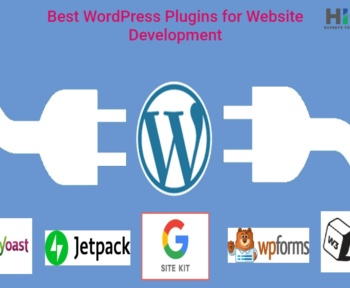There are many Best Practices for SEO that have been evolving every upcoming year. So we all have to be updated with these best practices for SEO else you will struggle to improve your website ranking. To increase the ranking of your website you need to do some best practices for SEO, which come with a set of tasks to help you in improving your website rankings in SERP (Search Engine Result Page).
Commonly the best practice for SEO,(Search Engine Optimization) depends on keyword researching, on-page optimization, and link building to your website. But there are still many practices to do to optimize your website ranking.
In this blog, we are going to show you some techniques and best practices for SEO to help you to boost your website ranking.
Some Best SEO Practices for boosting your Website Ranking
Competitor Audit
We think that you are all sure about for all of your websites there will be competitor sites in the marketplace. This will be one of the benefits for you to boost your website ranking. If you start learning about your competitor’s activities frequently in a smarter and better way like how they have been a step before you. You can easily identify this information by competitor audit.
It is one of the Best Practice for SEO that shows you where they create their backlinks and find the main and focused keyword that help your competitor to rank more than you. By identifying this information you can improve your website performance. There are many best SEO competitor analysis tools like Semrush, ubersuggest, Aherfs, and still, more which help you to identify how to improve your website performance easily.
Keyword Ranking
To rank by a keyword we need to perform Keyword Research, which is very crucial in SEO practice, you may struggle with where to start and how to find the exact keyword to improve the website. But if you have done the keyword research you can increase the ranking of your content on the website in the search engines.
Google Analytics Health
Google Analytics not only helps you track your website performance but also helps in understanding your customer’s and audience’s behavior.
This insight will help you in finding a way to optimize your website but you may face some issues in data quality to overcome this you need to free these issues from Google Analytics by using the Google Analytics Health Check Tool which is one of the best practices for SEO
Indexability
Crawlability and indexability are very best practices for SEO to boost your website rankings. The web crawler crawls the content on your site and then indexed it to the search engines.But sometimes you may face some issues in this process.
So, you need to do the best technical practices for SEO like troubleshooting the error and unwanted content and maintaining the structure of your links to optimize your website to avoid these issues.
Link Profile
Maintaining the links of your website is one of the important practices for SEO, which help you in increasing the website traffic directly or indirectly. This helps you get the great conversion for your brand so you should maintain the link profile. It has various types of links that forward to reach your website.
Site Architecture
Do you know that your website Structure can affect the crawl ability of your site? Yes, the structure of the website you can see some factors in it such as URL structure, website speed, HTTPs, device compatibility, etc. These factors should be aligned with your brand and your customers. So using the best Website architecture tool that suits you is one of the best practices of SEO to optimize your website.
Conclusions
We have come through some of the best practices for SEO to boost your website but there are still more SEO practices are there to improve your website. we hope that you have benefitted by reading our blog. Are you Struggling to maintain the SEO of your website? Hire Indian coders who will help you by offering the best service to satisfy your needs.




